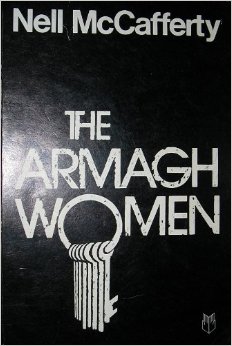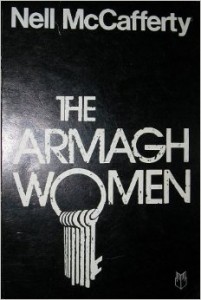The book, The Armagh Women, by Nell McCafferty serves as an analysis of what is was like to live in the patriarchal society of Northern Ireland and how through all of it, women were fighting back and shaping history. The book is broken up into different parts, each part serves the purpose of helping us to understand the conditions women lived in both inside and outside Armagh prison. The book starts off by giving us a window into what life was like in the prison and how the living conditions changed decade to decade as a result of the governing British putting different rules into place, such as Internment without trial. Through all the hardship the women faced, they were strong. These were women who had children of their own (multiple for the most part) and still kept up with the house and the rent while their men were either off fighting for the IRA or imprisoned. We see how women begin to realize their importance in Northern Ireland. The next part of the book talks, in detail, of three women’s accounts of their lives up to the 80’s. All three women, Rose McAllister, Ann Marie Loughran, and Eileen Mullan recount similar experiences. During this time women were fending for themselves while their husbands were off fighting for the IRA, when they were with their husbands it was usually a negative experience. Men were abusive both physically and mentally in many cases. Women were not held at the level of importance that the men were. In the 70’s women began to come together, helping each other through the worst parts. Without realizing it, they were gaining confidence and independence in living alone. Even though women were often imprisoned themselves they managed to take care of their family. Imprisoned women had to months or even years without seeing their children, sometimes multiple times over the decades. There is beauty in their struggle, even though they go through so much they face it head on and never cower. Women began to depend on each other emotionally, while their husbands were away they learned to be strong when it came to living in a war zone. They became vigilantes, banging on trash bins when the British Army was near in order to warn other women and nearby IRA members. Men fighting for the IRA and British soldiers were constantly invading the home of women, using it to fight, and in some cases, using it as a refuge. Women in many ways they are more brave then the men, choosing politics as an outlet to make a change rather than violence. In the 70’s more women were joining the Relatives Action Committee and other organizations, all meant to end imperialism and to help women going through the same hardships. This book makes us see that women have the power to change the nation. The author uses the passage of time to show how women through all the hardship progressed, and in the end poses the question of, ” Can there be national liberation without women’s liberation?” and vise versa.


